
A Sublime Nine: Ranking the Best Pegasus World Cup Winners

Matt Scull was not born into horse racing but like so many racing fans it probably was always in his blood, in this case thanks to his great-grandfather “Poppie.” From reunions at the racetrack during his childhood to understanding the nuances of betting to trips with friends to U.S. Triple Crown races, he became an avid fan of the sport.
After he graduated from Clemson University with a degree in mechanical engineering, Scull was motivated to become part of the industry and contacted Amplify Horse Racing to learn more about its mentorship program. Amplify connects young adults with a mentor — an experienced Thoroughbred industry professional — for a three-month program in the spring or fall designed to develop key skills, learn the Thoroughbred industry, build relationships, and gain valuable experience. Scull was paired with Shannon Castagnola, who worked at the time for Woodford Thoroughbreds as director of marketing and client relations and now is director of sales and stallion seasons at Airdrie Stud. Scull said it helped shape his path in the sport.
Scull, along with friends Brian Mills and Nick DeMartino, now operate First Rodeo Racing, a partnership inspired by a shared love of the racetrack and rags-to-riches racing stories like 2022 Kentucky Derby winner Rich Strike. Scull chatted with America’s Best Racing about his unusual path to the Thoroughbred industry and his team’s vision of a “modern partnership.”
AMERICA’S BEST RACING: How did you become interested in horse racing?
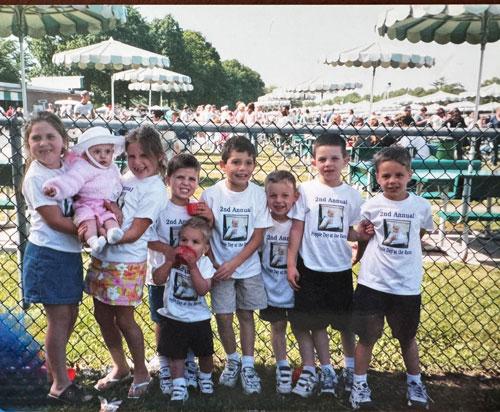
MATT SCULL: My family held an annual reunion at Monmouth Park in honor of my great-grandfather “Poppie,” who loved racing. Each year, I grew more interested through our “Poppie Day at the Races.”
ABR: What are some of the things about the sport that really connected with you?
SCULL: At first, it was the thrill of picking winners. I’ve always loved stats and data, so when I found [Andy] Beyer’s books while working near Monmouth one summer, I was hooked. Sharing picks and planning Kentucky Derby, Belmont Stakes, and Haskell trips with friends became a favorite hobby.
ABR: How did you learn about Amplify Horse Racing’s Mentorship Program after you graduated from college?
SCULL: I saw a post about it on X (then Twitter). If memory serves, it was actually shared by ABR — so this is pretty full circle.
ABR: How was that experience with Amplify and what did you learn from the program and your mentor, Shannon Castagnola?
SCULL: The experience was truly life-changing, and I’ll always be grateful for what Amplify and Shannon afforded me. They gave me the confidence to step off the sidelines and become an active participant in the sport I loved. The biggest takeaway was realizing just how accessible horse racing really is — the barrier to entry is much lower than most people think. If you have the passion and the willingness, you can absolutely find your place in this game.
ABR: I read that trips to Saratoga Race Course and Keeneland for the September sale really helped solidify your interest in becoming immersed in the sport. What was it about those trips that hit home with you?
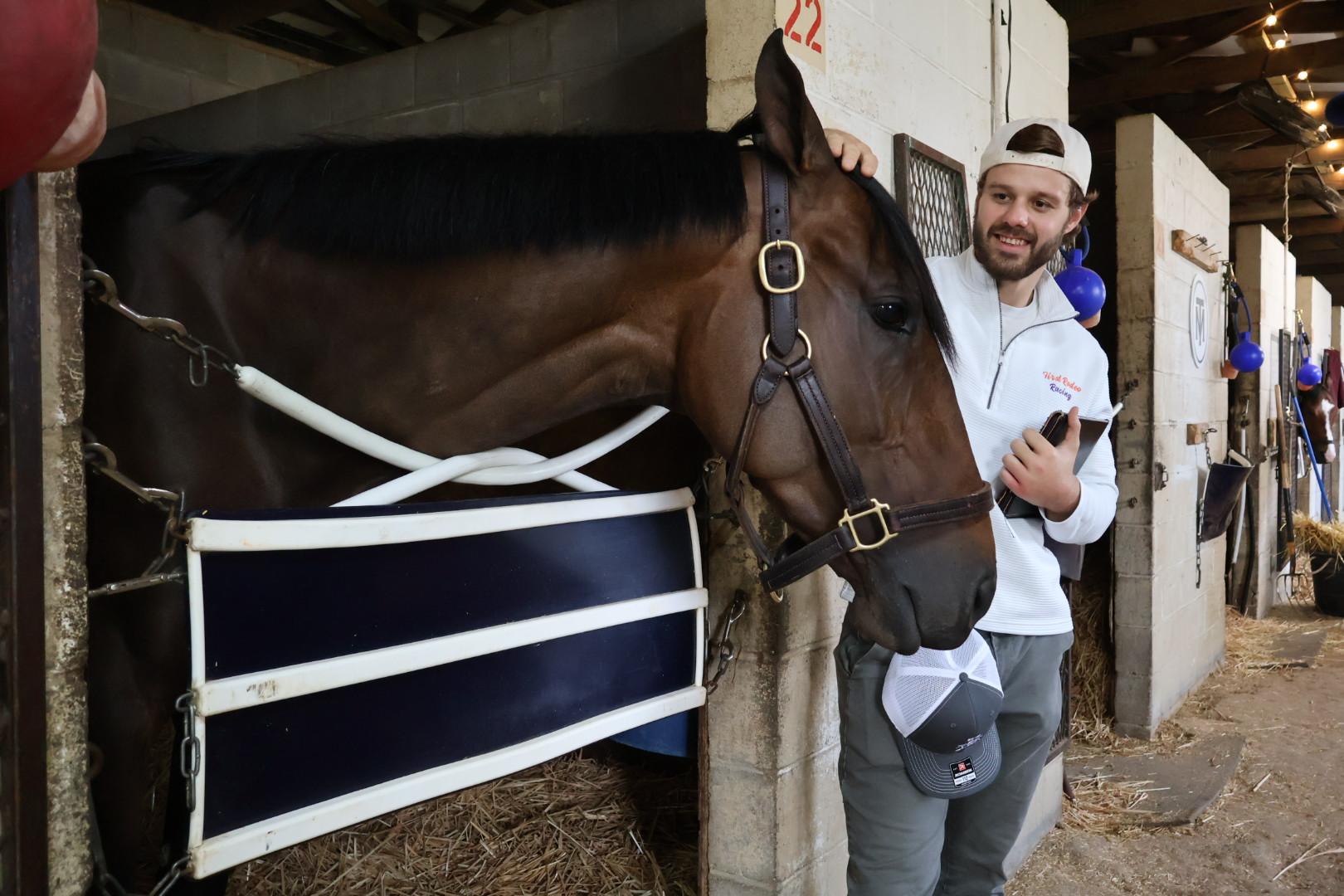
SCULL: The love of the horse. I already appreciated Thoroughbreds, but getting behind the scenes at the track and sales took it to another level. We’re lucky to be stewards of the breed and the sport.
ABR: What did your family think when you told them you were taking a job working with horses in Ocala, Fla., after studying mechanical engineering at Clemson?
SCULL: At first, my parents thought I was crazy, but they supported me and encouraged me to hedge my bets by keeping my engineering role. Those hands-on months were truly invaluable. My entire extended family has backed me throughout this journey. I truly hit the lottery with the people I share blood with.
ABR: You are putting your engineering degree to work, but it sounds like you were bitten by the racing bug. Tell us a little bit about the inspiration for First Rodeo Racing, the name, and your team?
SCULL: Our mission is to inspire the next generation of owners and players — taking people from watching three races a year to being the “racing expert” at the office water cooler. Ownership should feel accessible, transparent, and fun.
We’re similar to other microshare groups, but more personal and geared toward a younger audience.
The name reflects our mission: chasing firsts. Many partners are buying into their first horse, and we want them to know it’s OK if it’s their “first rodeo.” Naturally, we’re also chasing firsts at the finish line.
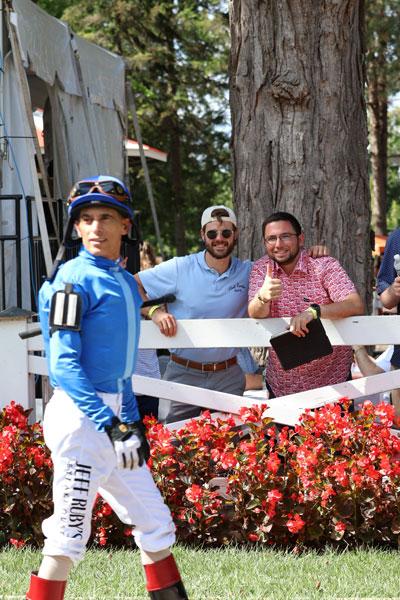
Brian Mills, one of my best friends since high school, leads our content and merch. Nick DeMartino joined this year to help in the Northeast. We met at the Travers a few years ago and quickly became close friends … one of the many lifelong friends met through the sport.
Our main trainer, Thomas Molloy, has been much more than a conditioner; he trained our first winner, helped us scale, and serves as a key advisor. Conor Foley of Oracle Bloodstock has also been an unofficial mentor since my Amplify days. He selects our unraced prospects and is always generous with his time and knowledge.
There’s a laundry list of people that have lent a hand, which is something that’s important for those new to the sport to understand — nine out of 10 people in this sport are willing to help.
ABR: There is a good amount of educational material on the First Rodeo website, how important is it for you to educate prospective partners?
SCULL: It’s central. Education and introductions are what we’re about, and we provide even more resources through the app we use to update partners.
We have recently entered into a partnership with Next Gen Thoroughbreds. They aspire to inspire the next generation of Thoroughbred workers. This naturally comes with many opportunities for education, so we’re combining resources to help amplify our signal.
ABR: What is your short- and long-term vision for First Rodeo?
SCULL: Short-term: Keep chasing firsts, on and off the track. Our focus is on improving the quality of our runners while growing the partnership in a sustainable way, so that every member gets a genuine ownership experience. Each year we open new spots, giving more people the chance to say they own a racehorse.
Seeing first-time owners at the track with their horse is always the most rewarding part. We’ve had partners whose very first trip to a racetrack came on a day they owned part of a runner, and that’s exactly the kind of experience we’re here to create.
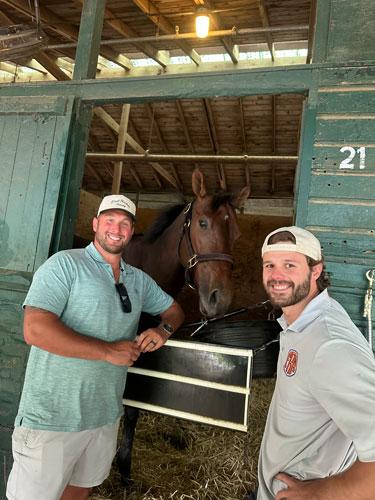
Long-term: At the end of October, we’re hosting a marquee event in Lexington designed to give new fans and owners that hands-on magic moment. It will offer an opportunity to be up close with the horses, trainers, and the community that makes racing so special. In five years, I see First Rodeo hosting interactive events nationwide, creating touchpoints that make racing more approachable than it’s ever been.
My ultimate vision is for First Rodeo to be both a racing stable and a lifestyle brand with media, merch, and ownership experiences that build a lasting community. I want us to help fuel a renaissance in U.S. horse racing. Racehorse ownership is the best-kept secret in sports, but it shouldn’t be.
ABR: Are there people in the horse racing industry that jump out that you really admire?
SCULL: There are a lot of people in this sport I admire, but three in particular stand out when it comes to building and running successful racing stables: Jeff Boschwitz, Jon Green, and Chase Chamberlin.
Jeff Boschwitz runs PlayingTheField Racing and has managed something remarkable — 50 wins in five years without losing money. His disciplined, analytical approach is one I’ve tried to model in my own decision-making. On top of that, he’s been generous with his time, sharing insights that have been incredibly valuable to me.
Jon Green of D. J. Stable is someone I’ve followed closely through his podcasts. I haven’t missed an episode of “Rail Talk,” and I pay special attention when he discusses the strategy behind campaigning the many great horses to wear the D. J. Stable silks. Listening to him has been like an ongoing masterclass in stable management.
And then there’s Chase Chamberlin of Commonwealth Thoroughbreds. To build a platform that not only opened the door to new owners but also went all the way to winning the Kentucky Derby with Mage. That’s a huge inspiration! Their branding and community-first approach are models we’ve drawn a lot of energy and ideas from here at First Rodeo.
ABR: Do you have a favorite racetrack?
SCULL: A year ago, I’d say Saratoga. Now it’s Keeneland. Saratoga is my favorite as a fan, but Keeneland sets the gold standard for hospitality and gives our partners a first-class experience.
ABR: Who is your favorite all-time Thoroughbred?
SCULL: Mitole. His 2019 Met Mile is etched in my memory. I was at Belmont with college friends, and he was my top pick of the day. McKinzie had a tough trip, but I don’t think he was ever getting by ... watch the gallop out.
ABR: What are some of the things you feel like the sport can and should do better?
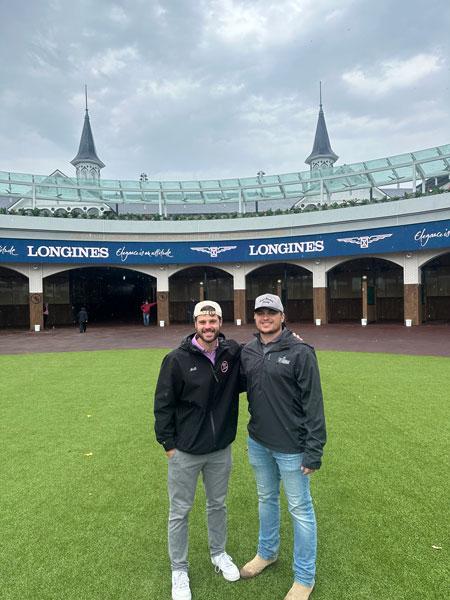
SCULL: I cover this often on “First Rodeo Radio,” where I ask guests for ideas to push the sport forward. My biggest point would be to meet people where they are. Racing should sit alongside mainstream betting options like NFL props. You should be able to add “horse to show in the 10th” at Kentucky Downs to your anytime TD parlay. And past-performance data should be more accessible. I’d love to see a beginner-friendly tool like EquinEdge made available for free and marketed on the big race days.
ABR: What are your interests outside of racing? I read you are an avid sports fans, which are your favorite teams?
SCULL: I’m a huge Clemson football fan — hence the orange and purple silks. I’m also naturally curious and love figuring out how things work, so my hobbies lean that way.
ABR: Is there a favorite non-Thoroughbred racing sports event that you’ve attended?
SCULL: Clemson’s 2017 national championship in Tampa. I couldn’t afford a ticket as a freshman, but I still tried to get in. I’ll save that story for another day!
ABR: I was told you plan to attend the Keeneland September yearling sale. Which is more exciting, cashing a big winning ticket or signing a ticket to buy a racehorse?
SCULL: I’ll color outside the lines a bit and say cashing a big Pick 5 with Brian and Nick. We’ve connected on some nice scores this summer.